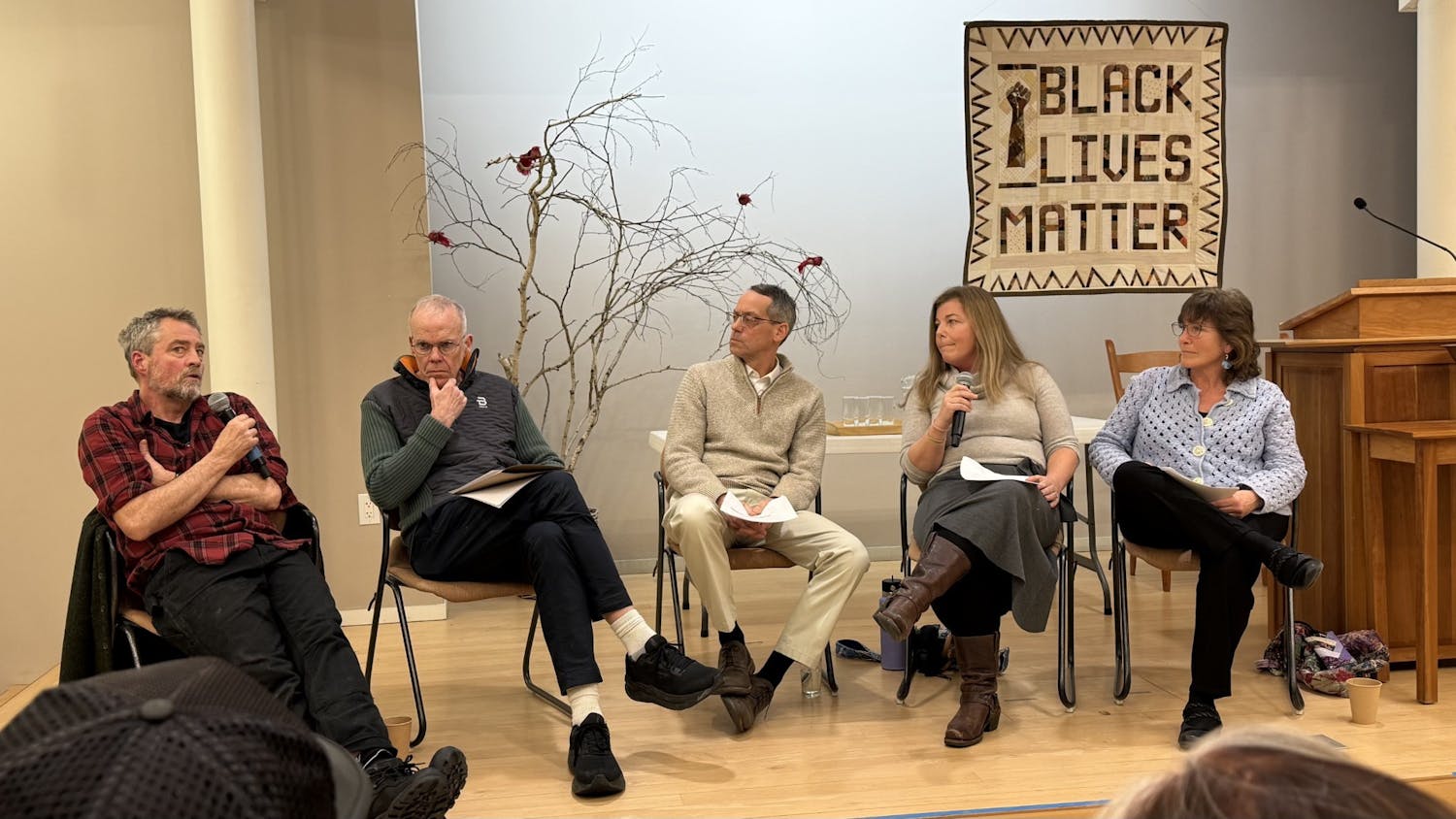Police reform took center stage in the Vermont legislature as lawmakers voted unanimously to approve S.219 on Friday, June 26 before adjourning for six weeks. The bill, which aims to address racial bias and excessive use of force by law enforcement, was first introduced in January but gained new attention from lawmakers following the murder of George Floyd by police in Minneapolis this May.
The bill, which now awaits Gov. Phil Scott’s signature, prohibits officers from using any restraint maneuver — including chokeholds — that “applies pressure to the neck, throat, windpipe or carotid artery that may prevent or hinder breathing, reduce intake of air or impede the flow of blood or oxygen to the brain.” In addition, the bill updates the definition of unprofessional conduct to include prohibited restraints. Officers who cause serious injury or death by using such a restraint face up to 20 years imprisonment and a $50,000 fine.
S.219 also requires that Vermont State Police officers begin using body cameras and that Vermont law enforcement agencies comply with existing race data reporting requirements in order to retain state grant funding. Under 20 V.S.A. § 2366, for all roadside stops Vermont police agencies are required to report the race, age and gender of the driver; the reason for the stop; any type of search that was performed; any evidence that was collected and the outcome of the stop.
Criticism
Although activists across the country have called for swift action to address police brutality, some Vermonters have criticized the bill as hasty and lacking in input from the state’s Black and Brown communities. Vermont State Senator and President Pro Tempore, Tim Ashe, explained that the legislature’s biggest challenge has been “the battle between time and progress.”
“I’ve watched ‘the process’ derail too many no-brainer reforms. So my encouragement as Senate leader was to act in as many instances as possible,” he wrote in an email to The Campus. “While these discussions will rightly continue in the months and years ahead, the will to act is now and it would be a mistake to miss it."
In addition, legislators set a repeal date of July 1, 2021 on the prohibited restraint and justifiable homicide statutes in order to prompt further action on them during the next session.
“In looking at [the justifiable homicide] statute, when our judiciary committee was taking up [bill S.219], they realized ‘this is really out of date and we need to do something with this,’ but we just didn't have the time to dig into it,” said Vermont State Senator Ruth Hardy in an interview with The Campus.
She explained that S. 219 is only a first step, and that the repeal forces the legislature to deal with the statute during its next session.
“It basically continues the conversation and continues the work and the testimony and the research into updating these statutes to make sure that they are relevant and timely and fair and unbiased and that they hold the police accountable for their actions,” Hardy said.
Furthermore, though this bill takes steps to address misconduct by individual officers, it does not include many of the demands made by advocates of institutional reform.
As part of his campaign for High Bailiff of Addison County, Dave Silberman began a petition titled “Repair Our Public Safety Systems: Center Justice and Community.” Calling for officials at all levels of government to move beyond words, it demands for civilian oversight of police use of force incidents, a review of all pending cases with Black defendants for signs of racial bias and the strengthening of existing hate crime laws.
Silberman said in a recent call with The Campus that addressing the systemic racism that “infests” policing systems starts with reevaluating the state and municipal budgets to reallocate resources towards models of public safety that center community justice instead of retribution and punishment.
His petition calls for reallocating law enforcement budgets to services such as crisis intervention and substance use counseling.
“Some people might want to call that ‘defund the police’; I call that reallocating our budget,” Silberman said. “But at the end of the day, it's about spending less on policing and more on effective models of community safety.”
Other bills
The legislature has made progress on other bills pertaining to policing and criminal justice reform. Bill S.338, also known as “Justice Reinvestment II,” passed on Wednesday, June 24 and also awaits Gov. Scott’s signature.
Based on the results of a decade of research into Vermont’s criminal justice system, it aims to reduce the state’s incarcerated population and reduce related expenses by streamlining furlough and parole policies.
The bill also commissions a new study into racial disparities in Vermont’s criminal justice system, with a focus on exploring the relationship between demographic factors and sentencing outcomes as well as whether the use and length of incarceration contributes to racial disparities.
In addition, the bill aims to reduce recidivism by providing greater support to persons transitioning into the community. Recidivism contributes significantly to Vermont’s incarceration rates, with an average of 78% of accepted inmates in the past three years returning from furlough, parole and probation. In addition, nearly 80% of furlough returns to incarceration are due to technical violations — such as a lack of housing or employment — rather than new criminal offenses.
When the legislature reconvenes in August, it will continue to work on S.119 — a bill that authorizes police use of deadly force only when “necessary” in the context of each situation — and S.124 – which modifies the state’s police recruitment, training and conduct standards and expands civilian membership in the Vermont Criminal Justice Training Council.
Editor’s Note: Ruth Hardy is married to Middlebury College Professor of Film and Media Culture Jason Mittell, who is The Campus’s academic advisor. All questions may be directed to campus@middlebury.edu.

Emmanuel Tamrat '22 is Digital Director.
He began working for The Campus as a photographer and online editor in the fall of 2018, and previously served as senior online editor.
An Environmental Policy major, Tamrat hails from London, GB but calls Alexandria, VA home. At Middlebury, he is involved in Rethinking Economics and works as a Democracy Intiatives Intern with the CCE.



